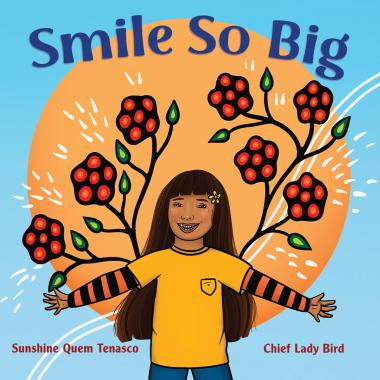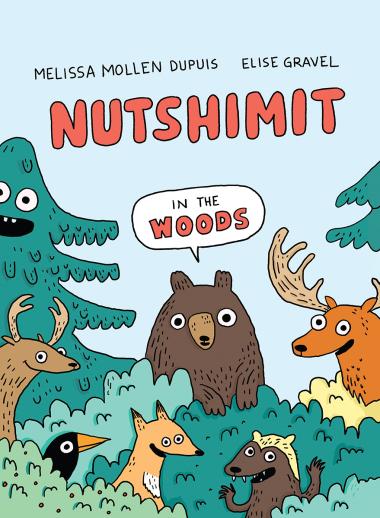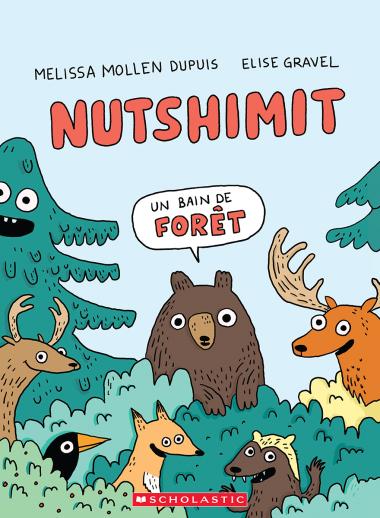Truth and Reconciliation
Our Ongoing Commitment to Truth and Reconciliation
Revised October 2024
In 2008, the federal government began the Truth and Reconciliation process with a formal apology to the Survivors of residential schools, their family members, and their communities. Around this time, the Truth and Reconciliation Commission was created as part of the Indian Residential Schools Settlement Agreement. Chaired by the Honourable Murray Sinclair, the Commission conducted hearings across the country to collect close to 7,000 stories and statements about the experiences and impacts of residential schools, with the ultimate goal of facilitating reconciliation. The final TRC report was published in 2015, and it included 94 Calls to Actions outlining ways that Canadians can move forward. Call 92 is aimed at the private sector and is directly applicable to Scholastic Canada.
Here are some actions that we have taken so far on our journey toward reconciliation:
Our Products
Education
In 2016, Scholastic Education Canada formed an Indigenous-led Advisory Team to inform and create learning resources in support of Truth and Reconciliation. Take Action for Reconciliation (2018) is made up of four magazine-style student books and teaching support that focus on Indigenous communities across Canada, the need for reconciliation, and the actions people are taking to make a difference. Implementation of this resource has been widespread from school boards and educators across the country.
In 2022, in honour of National Day for Truth and Reconciliation, we launched a new webpage offering free articles and discussion prompts for parents and teachers taken from this classroom resource. The site is available in both English and French, and the full discussion guide can also be downloaded from there.
In 2024, we created an Equity and Inclusion Advisory Panel of DEI experts in Education to support us in developing new learning resources that support educators’ professional learning, classroom instruction and curriculum delivery in increasingly diverse classrooms. This panel includes diverse and intersectional representation including Indigenous perspectives.
Publishing
Our Publishing team has been working on a number of incredible new books by Indigenous authors and illustrators! Here are a few highlights from our growing list of Indigenous titles in a variety of genres:

Smile So Big (Spring ’23)
Another incredible Sunshine Quem Tenasco – Chief Lady Bird collaboration (Nibi’s Water Song), Smile So Big is a picture book bursting with joy. In the story, a magic mirror reminds characters to see all their beauty, from their round cheeks and bright, sparkly eyes to their braids and textured hair. It’s a love letter to Indigenous kids in all their diversity—and an affirming book for every child. In Chief Lady Bird’s words: “This book matters because Indigenous children may face discrimination and as a result not feel ‘good enough’ or even ‘Native enough.’ Sunshine and I want to show them that they are enough. They’re more than enough. The children are our future and it is necessary that we uplift them and build a foundation of self-esteem and self-love so they can grow and learn and be healthy (physically, mentally and spiritually). The magic depicted in this book is directly inspired by the ways culture and teachings manifest within us and around us to help us create our own unique identities.”
Scholastic is excited to be the English-language publisher of Nish, the acclaimed three-part middle-grade series by Isabelle Picard, translated from French by Kateri Aubin Dubois. North and South (2023), Northern Lights (2024) and North Stars (2025) follow thirteen-year-old twins Eloise and Leon as they navigate friendships, school, family life and mystery in their community of Matimekush and in their adopted home 1000 km away in Wendake.


Nutshimit: Un bain de forêt / Nutshimit: In the Woods (August '23)
Innu author Melissa Mollen Dupuis teams up with award-winning author and illustrator Elise Gravel to create an outstanding picture book. In this immersive first-person account, readers follow Melissa as she takes a guided walk through the forest to teach some of the rich culture of the Innu people. Her depiction of the territory is fascinating. Melissa also introduces the readers to Innu vocabulary. For example, the Innu word “Nutshimit” signifies the physical and social space to practice traditional activities and language. The book includes a glossary as well as a link to a pronunciation guide.
Thoughtfully brought to life by Elise Gravel’s signature comic style illustrations, Melissa’s colloquial narrative and anecdotes detailing her lived experiences offer a deeply personal look at Innu life. Melissa takes readers on a journey through Innu culture, from creation legends to life today, while she shares personal anecdotes.
Nutshimit : Un bain de forêt was selected as the favourite book of Le club des aventuriers in 2024 and is a finalist for the children’s book prize from the Bibliothèque de Montréal (Montreal Public Library).
Nutshimit: In the Woods won the Ruth and Sylvia Schwartz Award in 2024. Melissa was honoured and grateful that the book resonated with kids.

We also produced a read-along ebook of both English and French editions of Robert Munsch and Jay Odjick’s Bear for Breakfast/Makwa kidji kijebà wìsiniyàn, with audio in English, French and Anishinaabemowin, and are planning to release more picture books in Indigenous languages beginning with Nibi’s Water Song/Nibi a soif, très soif next year.
Recently, four of our well-loved Robert Munsch books were translated into nêhiyawêwin (Cree) and denesųłıné (Dene) as part of a project to help revitalize Indigenous languages. This includes Blackflies, which was illustrated by Algonquin artist Jay Odjick. This is in addition to many other Indigenous language translations of Munsch books we have assisted with over the past several years.
School Markets
We have been focusing on sourcing and purchasing more books by and about Indigenous Peoples for our Book Clubs and Book Fairs, and have expressed the need for these books to the publishers we work with. To meet the needs of our customers in finding these books, we’ve created and filled collections on our flyers, cases, and websites for Indigenous Stories and Creators.
Our Partnerships
Scholarships for Indigenous students
Scholastic Canada is a member firm of the Canadian Publishers’ Council (CPC) and an active contributor to the Council’s Diversity, Equity and Inclusion Task Force. In July 2022, the CPC announced a partnership with Indspire to provide scholarships to Indigenous students enrolled in post-secondary education programs across Canada. Through this partnership, 10 students received a scholarship of $5,000 and we will also be working to raise awareness of employment opportunities in the publishing field so that we can diversify the workforce of our sector in Canada.
Our Workplace
Professional Learning
Organized by our internal DEI Committee, many of our employees have participated in several online courses including Indigenous Awareness and Indigenous Relations. Our Employee Resource Group for BIPOC employees has also organized learning opportunities including a “Teachings from the Land” workshop for National Day of Truth and Reconciliation in 2024.
Conscious Language and Style Guidance
We have developed and launched an internal Conscious Language Guide on Indigenous Peoples that promotes awareness and offers guidance on how to use language as consciously and respectfully as possible. It provides information, context, areas of concern, and guidance on a variety of topics and terminology related to Indigenous peoples, drawing upon the knowledge and labour of many First Nations, Métis and Inuit writers, editors and subject-matter experts. As a centralized resource, it supports our teams with knowledge and capacity building, communications, and consistency.